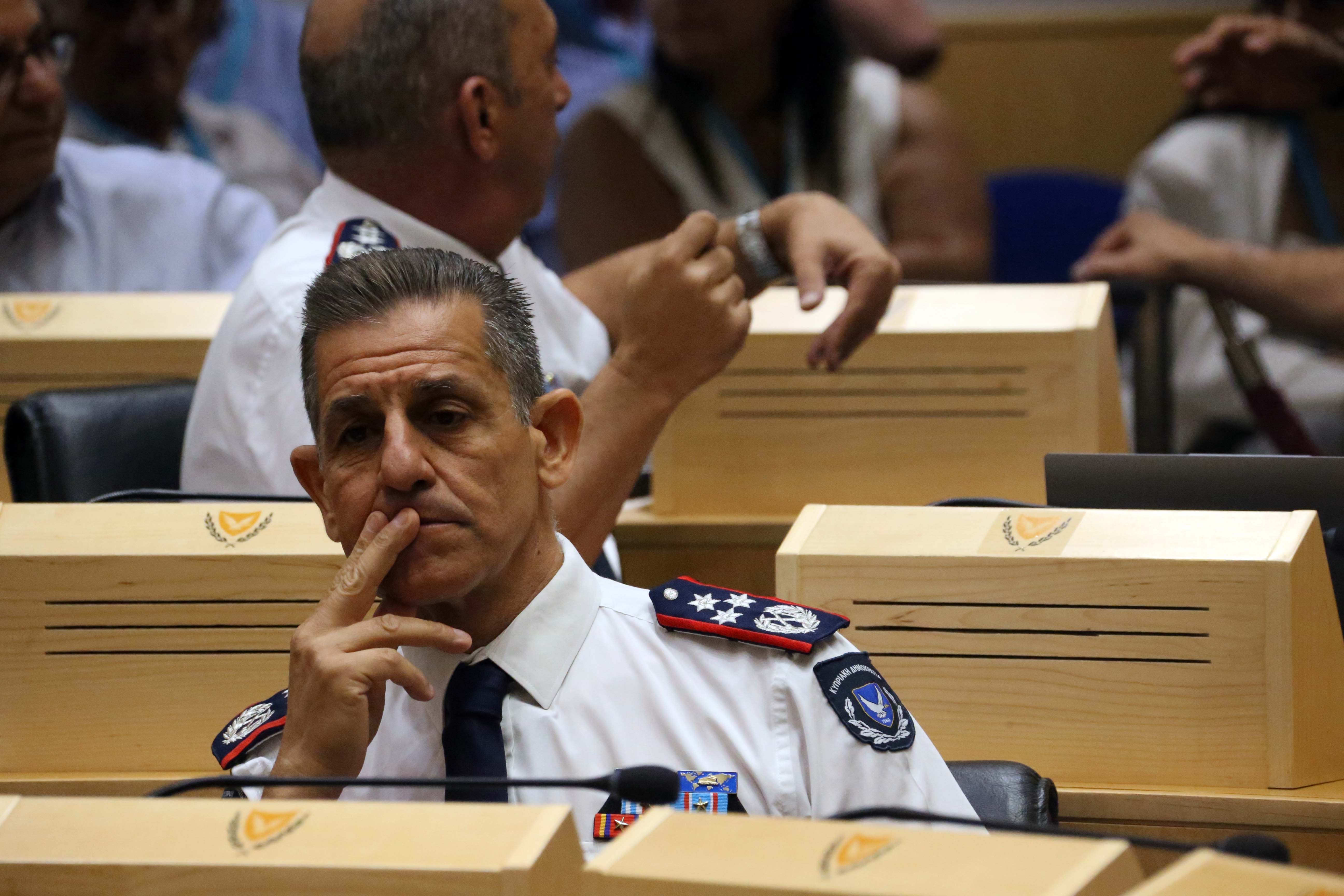Fire chief Nikos Longinos on Tuesday defended his actions during the wildfire which tore through the Limassol district and killed two people last month, saying he could not go above the heads of cabinet and direct the emergency services’ response to the fire.
“Under no circumstances could I violate cabinet’s decision and assume the duties of a coordinator,” he told a joint session of the House agriculture, environment, and interior committees.
“I cannot coordinate the forestry department, civil defence, or the police,” he added.
He said he is typically responsible for coordinating the fire brigade, but that he was “de facto” called upon to liaise with other institutions.
He had begun his statement by apologising to MPs “for not having the resources to protect all properties”, though he did congratulate firefighters for following his instructions “to the letter”.
On the day of the fire, July 23, he said he had been present in Limassol while informing both Justice Minister Marios Hartsiotis and Agriculture Minister Maria Panayiotou of the situation, and also telling police chief Themistos Arnaoutis to set up a coordination centre.
“I coordinated the services to send a representative to the centre, and from that point on, each representative coordinated their services. I was the umbrella, but I could not coordinate people from the forestry department,” he said.
He said that the agriculture ministry’s permanent secretary Andreas Gregoriou had been designated as the coordinator of the various involved organisations, but that Gregoriou was at the time in Australia to commemorate the anniversaries of the 1974 coup and invasion.
Before the start of that trip, he said, Gregoriou had invited him and others to a meeting.
“[He] told us that he would be leaving for Australia, and some instructions were given. As the fire chief, when I was informed about the fire, I assumed the responsibility of being the coordinator of the services… I assumed the burden of responsibility so that no more bad things would happen,” he said.
Longinos’ testimony led MPs to look less than fondly on testimonies given earlier in the day by both Gregoriou and Panayiotou, with Disy MP Kyriakos Hadjiyiannis exclaiming that “parliament has been misled” by both, and that “this is a criminal offence!”
Akel MP Andreas Pasiourtides, meanwhile, pointed out that following the wildfires in 2021, one of the “key points” identified as a hindrance to firefighting efforts was the “lack of coordination”.
He said that while the government was “right” to appoint someone as a designated coordinator in 2023, “in practice, with Gregoriou having departed, it seems in the end that everyone was just coordinating their own service”.
Gregoriou, who was still present to hear the accusation levelled against him, said Hadjiyiannis had drawn an “arbitrary conclusion”.
“We told the truth,” he added, saying that “as the head of an administration run by the presidency, it was deemed that I should represent the presidency” in Australia.
Asked who deemed this, he said that he had appointed himself and then added that in previous years there had been no coordinator for wildfire responses, and that “in any case, there are unified operational plans which provide in detail for who does what, where, and when”.
Akel MP Christos Christophides was incensed by this, saying, “a civil servant cannot go to Australia alone! You are not a member of the government!”
Disy MP Nikos Georgiou then pointed out that parliament had passed laws regarding wildfires.
“As the coordinator by law, whether you decided that for yourself or not, whether you accepted your responsibilities, did you not respect what we voted for?”
In response, Gregoriou then said he had been “covering political responsibilities”.
Once that exchange had concluded, Longinos was able to continue his testimony, explaining that he had activated two national plans devised to help the government deal with fires – Pyrsos and Ikaros.
“I coordinate my own service with the messages given to the others. Each person manages their own service,” he said.
He then added that the fire itself was “extraordinary”.
“It could not be controlled in any way. We, the fire brigade, had sent 20 vehicles,” he said.
He said he had called disaster response teams from Paphos, Larnaca and Nicosia, and that at that point, thoughts turned to the matter of stopping the fire reaching Cyprus’ cities.
He then said that “gaps” had been found in the management of fires in rural areas outside forests, given that the responsibility for fires in such areas had been transferred from the forestry department to the fire brigade in 1994.
A that time he said, there were 14 vehicles and 14 fire sergeants. However, the 14 vehicles are now out of service, and no extra funds have been allocated to help the fire brigade fight fires in non-forested rural areas.
“I am forced to staff the countryside with the funds I have available for the cities,” he added.
He then said that so far this year, there have been a total of 2,219 rural fires in Cyprus, of which 95 per cent were “in the fire service’s area of responsibility”.
However, he said, while the forestry department has 900 firefighters at its disposal, there are only 197 firefighters under the fire brigade’s umbrella.
He said he had raised this matter with parliament before, and then called for all fire-related on the island to be managed by the fire service.
“We cannot have one person in charge of volunteers, one in charge of evacuations, one in charge of prevention, and another in charge of fighting the fire. If I am not in charge of preventing the fire, how can I be in charge of fighting it?”






Click here to change your cookie preferences